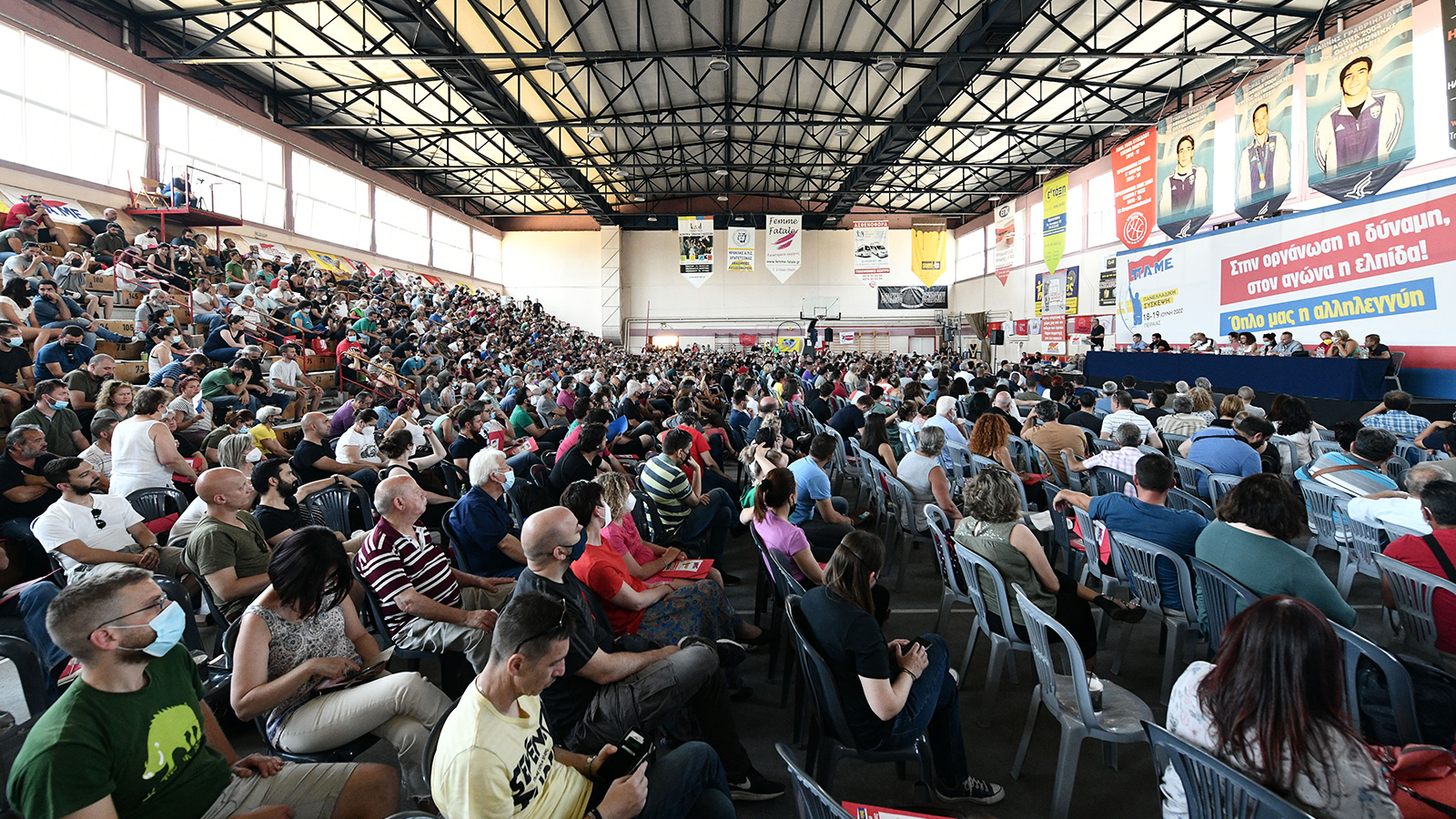When the pandemic hit the UK, our union was already in 2 disputes with the Higher Education (HE) employers: one over attacks on our pension scheme, and one over pay and working conditions (pay equality, casualised contracts and workload). Ironically, the UCU leadership called off the last week of that strike, that was over workload among other things, at the same time that the employers demanded that we switch to online teaching practically overnight and carry the whole sector over during the challenging times of lockdowns and the peak of the pandemic, assuming we’ll just accept the huge cost of workload. To keep the marketised HE sector, that was losing the revenue of international students, afloat during the pandemic, thousands of the most vulnerable and precarious employees lost their jobs across the UK.
Researchers had their work put on hold without their grants being extended, with the most junior leaving completely the sector as a consequence. In the midst of all this, restructurings and redundancies of core support personnel were announced in various universities. Inequality and excessive workload run – and are still running – rampant, as people with caring responsibilities, in sub-par housing, were asked to work from home without any consideration for their wellbeing, sometimes while caring for the sick or being sick themselves.
When it was time to bring the “students-customers” (as the marketisation mantra lingo of british – and not only – HE sector dictates) back on campus with questionable health and safety protocols, in order not to lose them (or their student housing rent income), we were brought back as well, lecturers, support staff, without consideration for the health and safety of the workplace, during a pandemic that was still going strong. The employers were not interested in their students; their only aim was to continue profit as a money making business entity, and they exploited and continue to exploit our genuine care and interest for our students to serve their spurious purpose. The workload of the ones that were fired initially was now being shared between the ones that remained, with the larger of the universities actually accepting record
numbers of domestic students in order to compensate for the loss of the international ones.
It should be noted that the precarious working conditions and the intensification of work is a result of the marketisation of HE. The pandemic was the pretext “at the right time” for the university bosses, with the help of the government and “yellow” trade union leaderships in some cases, to intensify their efforts of attacking the working conditions and employment rights of all the university staff, starting, of course, with the ones who were already in precarious working conditions before the pandemic. The attack on our rights and working conditions was and continues to be intense. Universities were threatened to close because they were in debt. For example, Goldsmiths College of the University of London is functioning under the administration of its creditor banks which is dictating the dismissal of staff.
The response of the UCU leadership to all this was one of inaction. Lots of lip service was paid to the sacrifice of the workers of the HE sector, but no central campaign or dispute was built in order to protect us. On the contrary, the disputes and the struggle that was organised before the pandemic were put in halt because, as the UCU leadership claimed, it was impossible to continue them during the pandemic. Local branches were left to their own devices to start their disputes to protect people from redundancies, or negotiate for better H&S measures on campus or contract extensions for the most vulnerable. And many of them did, dealing with all the challenges of organising a completely remote workforce. The University of Brighton UCU stopped redundancies in IT by threatening to strike and using a lot of social media to publicise their struggle and cause reputational damage to the employer. The University of Liverpool and University of Leicester UCU also stopped redundancies by running long and well organised marking boycotts. In these strange times, online activity and solidarity between branches has become paramount for the success of struggles. Grassroots initiatives for organisation and solidarity sprung up, that formulated demands, lobbied the UCU and coordinated actions (CoronaContract, UCU Solidarity Movement, PandemicPGRs). In a country where going on the streets to protest or on campus to picket was out of the question for a long while for health reasons, we had to be creative about how to protest in order to have an impact. Nonetheless, the lack of leadership from the UCU officials was sorely felt during the early times of the pandemic, creating a void in the response of the union, as well as the expectations that the workers as well as the employers had for such a response.
It comes as little surprise then that since the disputes were brought back to life last Autumn we’ve had problems mobilising our members adequately. We took close to 3 weeks of strike throughout this academic year, during which people enthusiastically took to the picket lines, showing the determination, spirit and creativity that is customary to university union members, this time also combining virtual pickets, activities and protests with the in-person ones. But with much of the teaching and other activity happening remotely, it has been hard to gauge how many people were actually participating and how much impact we had on the employers’ functions. The draconian anti-workers, anti-union laws of the UK makes it extra hard to take
action, especially strike, since it requires at least 50% of the union membership to participate in a paper ballot sent by post, for the strike to be legal. Such laws also make solidarity strike by other unions illegal, put stringent rules on notification of action to the employer, and strictly regulate picketing in numbers and scope, further weakening any potential action. Therefore only a fraction of our branches has been able to strike, even though the vast majority of them have voted overwhelmingly in favour of strike and Action Short Of Strike (ASOS). Finally, a lack of militancy and class-oriented strategy from the UCU leadership, in combination with employers that are pushed by uncertainty to secure and increase their profit margins and emboldened by our inaction the 1.5 year before, have caused the strikes and marking boycotts of this academic year to end with only a handful of local not-so-satisfactory settlements to show.
None of the issues that we’re in dispute about have been resolved. Our pension benefits have been cut by an average of 35%, while the private pension scheme is making good profit and has been throughout the whole pandemic. Our effective pay over the last decade or so has declined by close to 20%, without even taking into account the current cost of living crisis. The gender, race, and disability pay inequality is ranging in the mid-teen percent. The majority of the teaching and research staff that carry on the core functions of the university are on fixed-term, insecure, precarious contracts, with the younger ones taking the largest hit – a triple hit of low pay, pension insecurity, and employment insecurity. And our workloads are spiraling even more out of control, with serious health and safety effects by impacting staffs’ mental and physical health . At the same time, our employers are financially as healthy as ever, and students are called to pay eye-watering fees for the “privilege” of being taught by under-paid, over-exploited teachers. In the universities that are getting the short end of the marketisation stick, like the debt-ridden Goldsmiths College, the employees, as well as the students of more disadvantaged backgrounds, are again the ones that are getting to bear the weight, with redundancies, fire-and-rehire practices, department closures and the like.
We are not willing to give up. People in our union, in the HE sector, might be exhausted and fed up, but emotions are running high. Now more than ever we are in need of a militant and working class orientated labour movement that can see our perfectly reasonable demands to success.
We’ve learned a lot the past 2 years of the pandemic, and the past 4 years of industrial disputes. We can organise and win.
We express our solidarity to PAME and its congress!
For the PAME Congress June 2022 – International Seminar June 17
Ilektra Christidi, member of the Executive Committee of the University College London (UCL)
branch of the University and College Union (UCU) and co-Vice President elect of the branch.
Member of the UCU London Regional committee.


